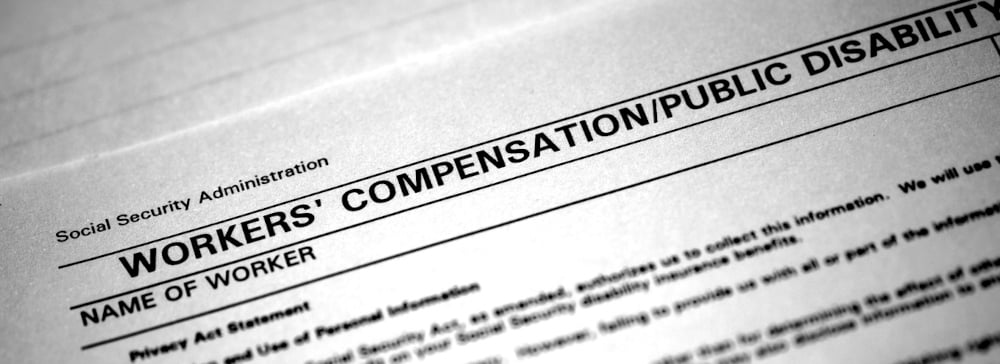Table of Contents
Getting hurt or becoming sick at work will qualify many employees for Florida’s workers’ compensation to cover related expenses.
The complexities of getting a claim accepted may require the knowledge of an experienced injury lawyer. The Stuart workers’ compensation lawyers at Kogan & DiSalvo offer free case review consultations to workers facing difficulties with the system.
Our knowledgeable workers’ comp attorneys can help to assess the full value of your injury accurately, recommend specialists to see to fully document it, anticipate counter-arguments that attorneys for the insurance company may make, and ensure that you receive the maximum compensation for your injury.

Workers’ comp in Florida, as in other states, is an attempt to facilitate an easy payment to injured workers and protect employers from employee lawsuits. Florida law requires businesses with more than four employees to provide workers’ compensation. However, several exceptions apply. For example, companies engaged in construction, an industry that is rife with injuries that are suffered by workers on the job, are required to carry workers’ comp if they have even one employee. In contrast, agricultural companies are not required to carry a policy until they have six workers.
Workers’ compensation claims must meet specific requirements for the insurance to apply. For example, if an employee is a truck driver for a company and suffers an injury in a truck accident, the claim will be denied if the driver wasn’t doing work-related duties by taking time to run a personal errand in the truck. Additionally, an employer must be notified within 30 days of a work-related injury, or within 30 days of learning of your work-related illness.
To avoid missing the 30-day cutoff, an employee must promptly report an injury or illness to a supervisor and go to a physician chosen by the employer. The worker also must seek medical attention quickly to ensure that further harm from inattention does not happen. If a cut finger left unattended becomes infected, the new damage may not qualify because of the employee’s delay. In cases of illness, reporting time begins when the employee first notices symptoms, such as a mesothelioma diagnosis in the case of asbestos workers.
Though the language of workers’ compensation insurance requires an injury to be “work-related,” this does not necessarily mean that it must be an injury you received while performing a work function. For example, this can include a slip and fall accident at work when you were taking a 15-minute break.
The insurance covers the cost of medical care and a portion of the earnings an employee loses from the inability to work. In Florida, wage protection is 66 percent of the employee’s average earnings from a week’s work. They calculate the exact amount of earnings 91 days before the injury or illness.
Florida law does not allow an employee to receive disability insurance if they only miss seven days of work, but if the disability lasts more than 21 days, they will receive payment for that seven-day period. Payments are generally based on a formula that varies between the severity and nature of the injury, i.e., a 100% loss of use of one arm will be worth 312 weeks’ pay, whereas a 25% loss of use of the same arm will be worth 78 weeks’ pay.
Injured or sick workers who receive social security benefits can also get workers’ comp benefits at a reduced rate. An employer cannot fire a worker for filing a workers’ compensation claim. However, under Florida law, the employer does not have to hold the worker’s job open until the employee is able to return. If the worker cannot return to the previous line of work, they can receive job counseling and re-training. Speak with a Stuart lawyer to learn more about the benefits of workers’ compensation.
In the event of a death resulting within one year of the date of a work-related accident, or after five years of continuous disability, workers’ comp will offer survivors death benefits up to $150,000, including funeral expenses, compensation to dependents, and educational benefits to the surviving spouse.
The state could potentially reject workers’ compensation claims if they do not follow the established rules or procedures. For example, an injury or ailment does not qualify if it happened previously or if the assigned duties did not exacerbate an existing condition.
The employee may challenge a denied claim by submitting a Petition for Benefits. Generally, the employee has two years to file the petition, but that depends upon the issue of the dispute. If the petition is not successful, the employee can go to the appeals board of the Division of Workers’ Compensation in the Florida Department of Financial Services.
Should that fail, they can go to the Florida Office of Insurance Regulation, and then the Florida First District Court of Appeals. Contact a Stuart lawyer to find out more information about what to do when a workers’ compensation claim is denied.
While workers’ compensation typically discharges an employer’s liability for a work-related injury, there can occasionally be third parties at fault for the accident, or the employer may have invalidated their workers’ compensation policy through gross negligence or intentional acts.
If a third party is partially at fault for an accident, they may be sued for negligence despite the employer’s liability being fully discharged through workers’ compensation. For example, if a construction site is owned by a third party and a dangerous condition that is the owner’s fault develops on the property and injures a worker, they can be sued for negligence.
As in any negligence case, it will need to be demonstrated that this defendant owed a duty to their plaintiff, that they breached their duty, and that this breach of their duty caused an injury to the plaintiff. This can be done even if the employer was partially at fault, and their liability in this accident is discharged through workers’ comp. For example, this can include a product liability claim for defective tools used during work and caused an injury.
Additionally, employers can act in a way that will invalidate their protection through workers’ comp and allow an employee to sue them. This can include gross negligence, committing acts intended to injure the worker, or failing to obtain workers’ comp insurance.
In the tragic event of a death resulting from a work-related injury not covered by workers’ comp, this can include a wrongful death claim. These claims will need to be filed by the decedent’s personal representative within two years of the date of their death.
Wrongful death cases are attempts by the courts to place survivors into the place of the decedent, allowing them to recover any damages that the decedent would have accumulated before their death, i.e., medical bills and compensation for pain and suffering. This will also allow survivors to receive compensation for the loss of their loved one, including loss of emotional support and the wages they would have received from their death until retirement.
If you believe that a work-related injury involved a third party or your employer invalidated their workers’ comp insurance, scheduling a free consultation with a Stuart personal injury attorney from Kogan & DiSalvo can help clarify and contextualize your injury.

If you suffer an injury at work, a Stuart workers’ compensation lawyer may be able to help you receive your benefits. Call today for a free consultation.
If you are injured and unable to come to us,
our attorney will come to you - there is no charge for us to do so.